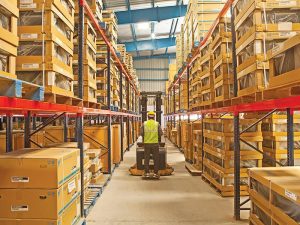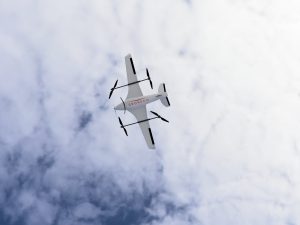“IATA recognizes the DGR certificates issued by DGCA-approved Indian DGR training schools. What we are asking for is an additional letter from the training provider to expedite the authentication of the DGR certificate and keep the duration of the cargo accreditation process to a minimum,” says Albert Tjoeng, Head – Corporate Communications at IATA. He adds, “DGR certification is a requirement for IATA cargo accreditation. This is to ensure there are trained personnel for handling the safe transportation of cargo, particularly dangerous goods. The DGR certification for IATA cargo accreditation can be obtained from the following: an IATA Dangerous Goods Course, an airline’s course of formal instruction in Dangerous Goods Acceptance, a course of formal instruction in Dangerous Goods Acceptance offered by a training establishment which has been appraised and endorsed by IATA as an Accredited Training School (ATS) and/or Competency Based Training Assessment (CBTA) Center, the ICAO-FIATA Dangerous Goods Training Course in Dangerous Goods Acceptance. a course of formal instruction offered by a training organization or other establishment which has been endorsed, or meets the criteria established by the regulatory authority responsible for Dangerous Goods in the specified country. “Unfortunately, over the years, we have received fraudulent DGR training certificates across the world. This is a concern that can have safety implications. As there is no global list of the thousands of training courses approved by each national aviation authority, nor of the courses that comply with the national aviation regulations, from 1 July 2024, we have required a letter for certificates issued by these training providers. This is to help authenticate that the certificate is genuine and help maintain this safety requirement within air cargo. Instead of a …
Read More »AFKLMP pulls out cargo capacity from Latin America to focus on Asia
Air France KLM Martinair Cargo (AFKLMP) is pulling freighter capacity out of the Latin American market to increase its focus on the rapidly growing market out of Asia. The carrier today announced that Martinair would launch a new Boeing 747-400 freighter service between Amsterdam Schiphol and Hong Kong via Dubai offering around 110 tonnes of capacity per flight. The service will launch on September 19, initially operating three times per week before increasing to four weekly flights at the start of the winter season on October 27.
Read More »MRF leases 3.85 lakh sq ft warehousing space in Pune’s Mawal
Indian multinational tyre manufacturing company MRF Tyres has secured a substantial warehousing space covering 3.85 lakh sq ft in the village of Sudvadi, located in Pune’s Mawal area through a long-term lease agreement extending over a total period of 10 years. The Chennai-headquartered company has entered into this lease arrangement with NDR Warehouse and according to the terms of the lease, MRF will be paying an initial monthly rental of nearly Rs 1.05 crore. The lease agreement is structured to include an annual rental escalation clause of 4.5%.
Read More »BookMyCargo enters domestic B2C segment to enhance operations
Logistics player BookMyCargo has entered the domestic business-to-consumer (B2C) segment to increase its market presence as it targets Rs 100 crore topline by FY30, a company official said. Established in 2016, the Gurugram-based BookMyCargo (BMC) is operating in the business-to-business (B2B) space serving clients in sectors like FMCG, consumer goods, and pharma among others. “As of 2016, the demand for same-day deliveries was less than 1 per cent. It is anticipated to increase to 22 per cent by 2025. We have entered into the B2C segment to tap this growth and increase our presence,” BookMyCargo Founder J D Yadav said. The company has also started B2C services in Thailand, he said. The company’s new service covers 75 provinces of the Southeast Asian country. As of March 2024, the company’s turnover was Rs 12.3 crore, Yadav said.
Read More »DTDC, Skye Air unite to boost drone deliveries
DTDC Express launched its latest last-mile innovation – Drone-based Deliveries. Through a strategic partnership with Skye Air Mobility, the company has taken an integral step in embracing new-age tech solutions to enable efficient and sustainable last-mile delivery for its customers. The first drone delivery happened from Bilaspur to Gurgaon sector 92 covering a distance of 7.5 km in just 3-4 mins instead of a usual road route of ~15 minutes. This marks a step forward in its commitment to adopting cutting-edge technology and setting new industry standards with the changing times. Building upon its vast physical network of 16,000+ channel partners covering nearly 96% of the Indian population, DTDC aims to further optimize the management of approximately 155 million parcels annually. This new development promises agile and hassle-free deliveries while contributing to eco-friendly logistics by reducing carbon emissions and traffic congestion. Following the successful launch in Gurgaon, DTDC plans to expand its drone delivery service to other key locations across India. The next phase of this initiative will focus on identifying strategic regions where drone deliveries can offer the most significant impact. Abhishek Chakraborty, Chief Executive Officer of DTDC Express Ltd. said, “As we commence the 35th year of DTDC’s journey, our strategic partnership with Skye Air marks a significant milestone in setting new benchmarks for last-mile delivery. The partnership aims to address the evolving logistics landscape, driven by digitalization and changing consumer behaviours, presenting us with an opportunity to redefine last-mile logistics in this country. Ankit Kumar, Founder & CEO of Skye Air, expressed his enthusiasm about the partnership with DTDC and the potential of their cutting-edge drone technology to revolutionize urban logistics. He said “We are thrilled to …
Read More »‘IATA accreditation program is common for global airlines with strict criteria’
Glyn Hughes, Director General, TIACA says, “IATA is a trade association that establishes industry standards and practices whereas the DGCA is a national regulatory body whose primary role is to establish a safe and secure national civil aviation industry. The IATA accreditation program was established to provide a common platform for airlines to appoint their agents, hence why there was strict criteria. However, the program must recognize approved national training organizations and therefore should accept certificates from DGCA approved training bodies. I understand there was an issue earlier this year where the DGCA didn’t recertify some training bodies in accordance with new Competency based training requirements established by ICAO.”
Read More »‘IATA is most welcome to make amendments if anything lacking in Indian DGR system’
Cyrus Katgara, Partner, Jeena & Company shares, “Personally, I have done my DGR course with Air India and I found it very professional. It was not a cakewalk, but had to work hard to qualify DGR examination. If there is anything lacking in our DGR programs, IATA is most welcome to make amendment of suggestions. The industry must move hand-in-hand, working positively towards professionalism.”
Read More »‘Indian DG training institutes must adopt & adhere to IATA’s norms’
Afzal Malbarwala, Managing Director, Galaxy Freight shares, “There is a need for skilled manpower in the dangerous goods logistics business be it handling, or transportation among others. Also, Indian DG training institutes should hire skilled and experienced personnel who are qualified and know what they must do well. The institutes must provide practical training not mere bookish knowledge. I feel, Indian agents must get IATA certified, I know it is a costly process, but it is important to ensure safety of not only the goods but also the persons involved in the business. IATA’s way of teaching and curriculum (common for institutes worldwide) is completely different. Indian institutes must adopt that. IATA approved training schools have staff trained and approved by IATA and only they are authorised to train. Certificates are issued by IATA CANADA for successful candidate will get DG training programme 7.1 accepted worldwide which is not given by DGCA approved schools. IATA and ICAO work closely to provide the best standards of services. True, Indian DG training institutes are DGCA-approved, but there are certain important norms formulated by the IATA, which Indian training institutes and agents must know and strictly follow. DGCA must introduce one rule book for all, covering international and national mandates for DG business. In India, half of the DG handlers are not even aware of the international regulations involved; the airlines too must follow these norms. Another important point is, in foreign countries there is a rule that only those who are dealing in dangerous goods require IATA certification, while others do not. But in India, this is also not applicable.”
Read More »‘DGCA must clearly specify requirements for DG & ensure institutions adhere to it’
Satish Lakkaraju, CEO, Nexgen Logistics, Garudavega says, “There have been various changes in the Dangerous Goods Regulations and training of the employees in the recent past and the air cargo industry has been struggling for a clarification from the various authorities on the same. DGCA, the nodal body for the same must specify the requirements and ensure the institutions adhere to the same and then the candidates are trained accordingly. The IATA has also not been clear and not accepting the current certificates is major issue for the industry and this has to be addressed through discussions on priority.”
Read More »‘IATA must not ask for additional certificate from agents’
Radharaman Panicker, MD, Dangerous Goods Management India says, “The training school offering DG course for air transport needs to be approved by Director General of Civil Aviation, Government of India according to the civil aviation requirement (CAR) on training issued by the competent authority. Further it is mandatory for everyone involved in the transportation of air cargo to be trained in accordance with the said CAR, which also includes the freight forwarder. This is as per Rule 12 of the Aircraft (Carriage of Dangerous Goods) Rules 2003. The certificate issued by the approved training schools are required to affix the words “DGCA approved” on the certificate. Certificate issued by us also contains such a requirement. This is being followed in India for last 12-13 years now. Most of the institutes in India were first required to be approved by DGCA, then only the IATA accreditation if any would come into play. So, it is ridiculous for IATA to ask for additional certificate from the training school. Otherwise, what is the meaning of certificate being issued by approved training school. If IATA indeed has doubt about the authenticity of the school, they should address the matter to the DGCA and asked to be submitted a list of approved training school for their record or they could simply go and check the website of DGCA. It appears to me that they are questioning the authority of the Government of India to approve training institutions in India or even the programme itself.”
Read More » Cargo Breaking News
Cargo Breaking News









